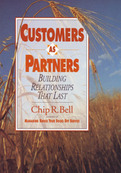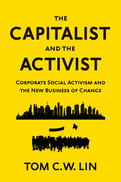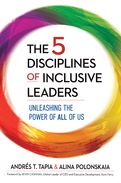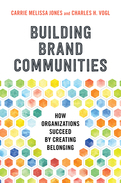Now updated with 20% new content, including strategies for remote and hybrid workplaces.
In this expanded third edition of the bestselling The Introverted Leader, Jennifer Kahnweiler equips introverted leaders with essential tools for success in an extrovert-centric business world. With over 120,000 copies sold across multiple languages, this timely update addresses the evolving needs of introverted leaders, including in navigating remote and hybrid work environments such as:
• Navigating the challenges of Zoom calls
• Getting noticed when working remotely
• Applying innovative meeting techniques for engaging introverts
Kahnweiler's proven four-step strategy based on lessons from thousands of introverted leaders-Prepare, Presence, Push, and Practice-provides a concrete framework for introverts to leverage their natural strengths and overcome challenges in key areas such as public speaking, project management, and networking. The book includes:
• Practical applications of the 4 Ps approach in six crucial workplace scenarios
• A new chapter on leading effectively in remote and hybrid spaces
• The “Quiet Wrap-Up Journal” An action-oriented study guide for ongoing development
• Customized hiring and coaching strategies for introverts
Drawing from extensive research and over 100 interviews, Kahnweiler demonstrates how introversion can be a leadership asset, particularly in listening and written communication. This essential guide empowers introverted leaders to embrace their authentic selves while advancing their careers and making meaningful contributions to their organizations.
Gerald Davis argues this is a root cause of the income inequality and social instability we face today. Corporations were once an integral part of building the middle class. He points out that in their heyday they offered millions of people lifetime employment, a stable career path, health insurance, and retirement pensions. They were like small private welfare states.
The businesses that are replacing them will not fill the same role. For one thing, they employ far fewer people—the combined global workforces of Facebook, Yelp, Zynga, LinkedIn, Zillow, Tableau, Zulily, and Box are smaller than the number of people who lost their jobs when Circuit City was liquidated in 2009. And in the “sharing economy,” companies have no obligation to most of the people who work for them—at the end of 2014 Uber had over 160,000 “driver-partners” in the United States but recognized only about 2,000 people as actual employees.
Davis tracks the rise of the large American corporation and the economic, social, and technological developments that have led to its decline. The future could see either increasing economic polarization, as careers turn into jobs and jobs turn into tasks, or a more democratic economy built from the grass roots. It's up to us.
Astute managers and entrepreneurs already know that customer loyalty is a necessity for profitable businesses in the '90s and beyond, and they have invested in this knowledge by initiating a wide variety of quality service programs intended to dazzle customers. But while providing dazzling service may tender short-term customer satisfaction, it is a costly and unsustainable approach. Long-term success depends on replacing the superficial transaction-oriented approach with the deeper commitment of partnership-the essence of a value-based approach to serving customers.
Describing the qualities that embody this deeper commitment, Customers As Partners provides examples from the corporate world, small service businesses, and personal experience. Illustrating each key principle with anecdotes and stories, this book shows how all lasting business relationships share the same partnership attributes as a friendship or marriage, and how each is:
o grounded in an attitude of generosity,
o bolstered by a sense of trust,
o propelled by a joint purpose or shared vision,
o served by honesty,
o characterized by a sense of balance, and
o infused with an element of familiarity and ease.
Customers As Partners vividly shows how to achieve lasting success by creating sustaining personal bonds-the true source of a company's profitability. This ground-breaking work provides insights on how to keep the quality of these relationships central in every interaction. It offers a model of partnership where customers offer valuable feedback, support your business by recommending you to others, and forgive mistakes because they feel a reciprocal long-term commitment.
- How to do the crucial-yet often overlooked-front-end work that will save organizations time and money in their performance improvement programs
- Provides the step-by-step analysis techniques essential for effective corporate training, quality, and re-engineering programs
2023 Nautilus Book Award Silver Medalist (Social Change & Social Justice)
This is the first in-depth examination of the important ongoing fusion of activism, capitalism, and social change masterfully told through a compelling narrative filled with vivid stories and striking studies.
Corporations and their executives are at the forefront of some of the most contentious and important social issues of our time. Through pronouncements, policies, boycotts, sponsorships, lobbying, and fundraising, corporations are actively engaged in issues like immigration reform, gun regulation, racial justice, gender equality, and religious freedom.
Despite corporate social activism being everywhere these days-witness how quickly companies and progressives united to oppose North Carolina's bathroom bill or support the Black Lives Matter movement-there has been no in-depth examination of the far-reaching consequences of this movement. What first principles should guide businesses' approaches? How should activists engage with businesses in a way that is most beneficial to their causes? What are potential pitfalls and risks associated with corporate social activism for activists, businesses, and society at large? Weaving studies and stories, Temple University professor of law, Tom C. W. Lin offers a road map for how we got here and a compass for where we are going as a nation of capitalists and activists seeking profit and progress.
According to the journal Human Resource Management, companies are spending over $8 billion a year on diversity programs. Yet today, the senior leadership teams at Fortune 500 companies are far from mirroring the diversity of its workforce and its customers. Andrés Tapia and Alina Polonskaia, senior leaders at Korn Ferry, argue that to build sustainable diversity and inclusion, organizations need to have inclusive leaders at all levels.
In this book, Tapia and Polonskaia draw on Korn Ferry's massive database of 3 million leadership assessments to reveal the essential qualities of inclusive leaders. They discuss the personality traits these leaders share and detail how to develop what they call the five disciplines of inclusive leadership: building interpersonal trust, integrating diverse perspectives, optimizing talent, applying an adaptive mindset, and achieving transformation.
Tapia and Polonskaia also outline the competencies behind each discipline, describe individual and organizational exemplars of inclusive leadership, and show how the five disciplines enable leaders to unleash the power of all people and to build both structurally and behaviorally inclusive organizations. This book will help leaders foster the skills to deal with today's complex challenges and create a more inclusive, sustainable, and prosperous future for all of us.
Smart organizations know that creating communities is the key to unlocking unprecedented outcomes. But too many mistakenly rely on superficial transactional relationships as a foundation for community, when really people want something deeper. Carrie Melissa Jones and Charles Vogl argue that in an authentic and enriching community, members have mutual concern for one another, share personal values, and join together in meaningful shared experiences, whether online or off. On the deepest level, brands must help members grow into who they want to be.
Jones and Vogl present practices used by global brands like Yelp, Etsy, Twitch, Harley Davidson, Salesforce, Airbnb, Sephora, and others to connect in a meaningful way with the people critical for their success. They articulate how authentic communities can serve organizational goals in seven different areas: innovation, talent recruitment, customer retention, marketing, customer service, building transformational movements, and creating community forums. They also reveal principles to grow a new brand community to critical mass. This is the first comprehensive guide to a crucial differentiator that gives organizations access to untapped enthusiasm and engagement.






















